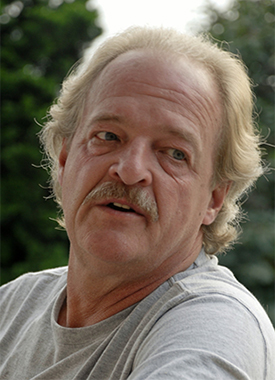NEWSLETTER
|
Thomas Miller, Innovator for Social Change and Novelist
Friends and colleagues of the late Thomas Miller gathered in New York City last May 10 to celebrate as much the “spirit” of the man as his innovative and influential work with the Ford Foundation and other ventures.
Mr. Miller, who worked for the Foundation for 14 years as director of Program Related Investments (PRI) and then as assistant representative in the Nairobi office, died March 19 at his home in Berea, Kentucky.
But he was also, as many remembered during the gathering in New York, a man with a light, folksy touch, his professional achievements leavened by a fondness for what was referred to as “Tomisms”.
Raymond Offenheiser, now president of OXFAM America, remembered in an email “Tom’s ability to find a country lyric appropriate for any occasion. They tended to roll out most liberally over a beer and a good dinner. One I remember went something like this: ‘I been waiting on the soup so long, baby, I’ve lost my hunger for your love’.”
Ellen Lumpkin Brown shared two “Tomisms” in particular in an email: “I’m just rolling around like a BB in a boxcar.” Translation, she said: “It’s lonely over here.” The second was, “I’m standing with a penny, waitin’ on change.” Again, she translated,: “That’s it, there’s nothing more.”
Judith Samuelson, who succeeded Mr. Miller as director of the PRI office in New York and now is Executive Director of the Business and Society program of the Aspen Institute, spoke to his mastery of Country Western lyrics and his ability to embed them in Trustee reports “to great effect”.
That ability, and whimsical approach, was recalled by Barron Tenny in a story of one particular meeting of the Board of Trustees.
He recalled in an email message that as “Tom was at the table about to make a PRI presentation he began by saying that prior to the meeting Frank Thomas (then the president of the Foundation) had admonished all the presenters not to read their remarks. He then took the script he was holding and dramatically ripped it up.
“After a few seconds elapsed, he pulled out another version of the script from his inside jacket pocket and said something along the lines of, if you think I would make this presentation without the security of having a written script you’re crazy. Laughter and applause followed.”
Mr. Miller started work at Ford in 1983 in the PRI office after having been president of the Kentucky Highlands Investment Corporation (KHIC). He became director of the office in 1987.
He went to the East Africa office in 1992, became the assistant representative there in 1993 and left the Foundation in 1997. An indication of his commitment was provided by Ghebre Mehreteab, who worked at Ford in the Urban Poverty program in the 1980s and once visited Mr. Miller in Nairobi. “He told me,” he said, “I want to be demoted from a program officer in charge to program officer so I can do real work.”
His early work on “innovative PRI investments put some of these global innovators in microfinance and credit as a catalyst for private investment on the map and made it safe for others to follow,” said Judith Samuelson.
She said that while he was one of many who supported such work, “he had a keen eye for what our role could be in building these institutions without losing perspective on the limits of investment capital and the very real risks involved. Tom would challenge orthodoxy about economics while respecting the power of markets to create wealth and opportunity for people the Ford Foundation hoped to help.
“He lived life to the fullest,” she said, “and had a rare mix of compassion and intellect, optimism and pragmatism.”
His background as a certified public accountant and earlier work with KHIC provided the knowledge and experience instrumental for his work in East Africa and South Asia.
“He came up with the idea of investing KHIC’s federal grants in local businesses rather than spending them on programs,” said Kerwin Tesdell, a former PRI program officer at the Foundation and now president of the Community Development Venture Capital Alliance.
“KHIC has served as a model for impact investment funds throughout the nation and around the world,” Tesdell said.
In recent years Mr. Miller turned the insights gained during his multi-faceted career into a new venture, writing, and earned a master of fine arts degree in writing from Eastern Kentucky University in 2015 while he continued to work on a novel he had begun years before.
Then, just weeks before his death, he learned that he had been chosen one of ten finalists for PEN America’s Bellwether Prize, created and funded by the novelist Barbara Kingsolver and given every two years for an “unpublished novel of high literary caliber that promotes fiction that addresses issues of social justice and the impact of culture and politics on human relationships”.
He did not win the award, which was announced after his death. But being chosen to compete confirmed his efforts. “I am not expecting to win,” he said when notified of his selection as a finalist, “but consider this to be validation of the sixteen years of work I have put in, including going to back to school…and learn something about writing. It looks like I did”.
The novel, Nightrunner, and a sequel he was working on, are set in East Africa. He described them as focusing on “the lives of ordinary people and how they cope with the many injustices they face in daily life. Parallels are drawn to similar challenges faced by the people of Appalachian Kentucky. They are also a love story between two people different in every way—race, economic class, education level and age”.
|


